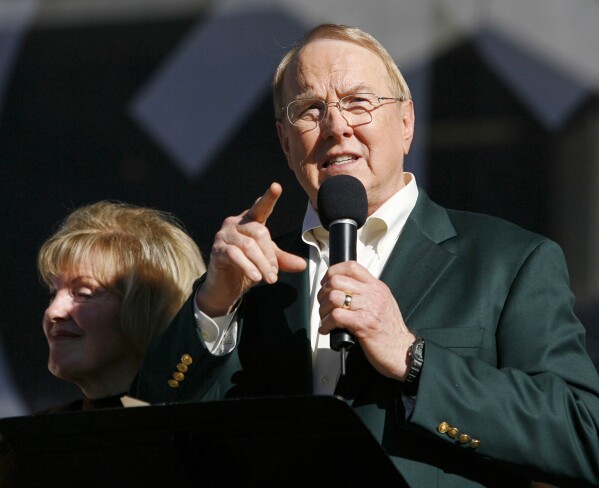James Clayton Dobson Jr., a psychologist who became one of the most influential figures in American evangelical life and founder of Focus on the Family, died on August 21, 2025, at the age of 89. His voice, heard on thousands of radio stations for decades, made him a trusted adviser to millions of Christians and a political force whose reach extended from pulpits to the White House.
Dobson was born in Shreveport, Louisiana, in 1936 and grew up in a devout Church of the Nazarene household. His father was a traveling evangelist, and the young Dobson initially dreamed of becoming a preacher. Instead, he pursued a career in psychology, earning a PhD in child development from the University of Southern California. His early professional years were spent at the USC School of Medicine and as a staff member at Children’s Hospital in Los Angeles, where he worked closely with troubled youth. That experience laid the groundwork for the ideas that would later shape his books and broadcasts.
In 1970, Dobson published Dare to Discipline, a book that urged parents to take firm authority in raising children. He emphasized what he called strong but loving discipline, including the use of corporal punishment in moderation, a recommendation that drew widespread praise from conservative Christian families but also controversy from child development experts. The book was a bestseller and established Dobson as a new voice in the cultural conversation about parenting and morality during a period of sweeping social change.
Recognizing the influence of media, Dobson founded Focus on the Family in 1977. Based in Pomona, California, before relocating to Colorado Springs, the organization grew from a small radio outreach into a global ministry. The daily Focus on the Family broadcast reached millions across the United States and around the world, translated into dozens of languages and distributed to radio, television, and print outlets. Over time, the ministry expanded into counseling services, marriage retreats, magazines, children’s programming, and policy advocacy, making it a one-stop institution for evangelical families seeking guidance on faith and life.
Dobson’s influence stretched well beyond the walls of his ministry. By the 1980s and 1990s, he had become a central figure in the religious right, frequently called upon by national leaders to weigh in on issues ranging from abortion and school prayer to same-sex marriage and family policy. His meetings with Ronald Reagan, George H.W. Bush, George W. Bush, and later Donald Trump placed him squarely in the corridors of power. Supporters viewed him as a moral compass, a man unafraid to speak bluntly about cultural decline, while critics said his stances fueled division and stigmatized marginalized groups.
Despite the controversies, Dobson’s ability to mobilize listeners and readers gave him extraordinary reach. He wrote more than 70 books, among them Bringing Up Boys, Bringing Up Girls, and Love for a Lifetime, which blended biblical principles with psychological insights. His straightforward, often anecdotal style appealed to parents seeking clarity in what they saw as a confusing and permissive culture.
By the late 2000s, Dobson began transitioning away from direct leadership at Focus on the Family. In 2010, he launched the Dr. James Dobson Family Institute and a new broadcast called Family Talk, continuing his work on a smaller scale. The move allowed him to step away from the bureaucratic demands of a large nonprofit while maintaining his platform as a commentator and counselor. Even in his later years, his opinions carried weight within conservative evangelical circles.
Dobson’s legacy is a complicated one. Admirers credit him with strengthening Christian families, encouraging fathers to take active roles in parenting, and providing a steady voice at a time when many felt cultural values were eroding. His critics point to his advocacy of corporal punishment and his vocal opposition to LGBTQ+ rights as examples of a rigid worldview that, in their view, caused harm. Regardless of perspective, few dispute the scale of his influence. For decades, his writings and broadcasts shaped conversations around kitchen tables, church pews, and political campaigns alike.
He is survived by his wife of 64 years, Shirley, who herself was active in national prayer initiatives, their two children, and two grandchildren. In tributes issued by his family and ministry colleagues, Dobson was remembered as a man who dedicated his life to defending what he saw as the biblical model of family.
With his death, American evangelicalism loses one of its most recognizable voices. James Dobson leaves behind a movement reshaped by his teachings, a generation influenced by his counsel, and a legacy that continues to spark debate about the intersection of faith, family, and politics in American life.




